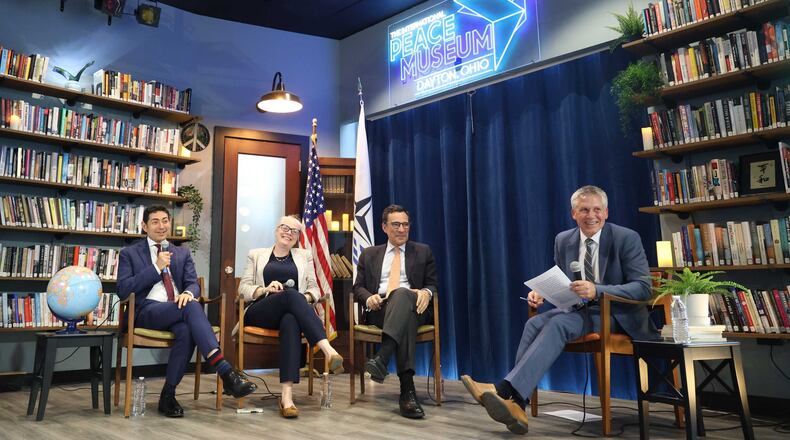With the war in Ukraine top of mind for NATO this weekend, Perestrello offered his perspective on why Russian President Vladimir Putin chose to invade.
“Putin invaded Ukraine because he thought in two weeks he could be in Kyiv and installed there by a puppet regime,” Perestrello said. “He thought Ukraine was weak — that’s why he invaded... There is no peace without strength."
McInnis explored the topic of women in leadership, particularly in response to countries with women leaders having lower levels of violence, conflicts or war. Through studies conducted by the CSIS she said there have been significant advantages to ensuring women are at the table of diplomacy.
“(Women play) crucial roles in security institutions and in our governments of the world,” McInnis said. “Organizations risk not having sufficient intelligence about the environments they are operating if they don’t have women because women tend to talk to women.”
She also discussed the “gender-based playbooks” being run by authoritarian adversaries.
“Our authoritarian adversaries — Russia, China, North Korea to some extent — double-down on aggressively misogynistic rhetoric," McInnis said. “They advocate for women taking traditional roles, advancing this notion of this Golden Age where women were having babies. But what we notice though is that over time, women’s groups are a powerful force for democracy and can be the first chink in the army, the first crack in the glass, when it comes to taking down these regimes.”
Cuéllar, a former justice of the Supreme Court of California, was notably impressed with the archives of the Dayton Peace Accords on display at the museum. He found the objects inspiring.
“At the time for the participants who were bleary-eyed after days and days of negotiation, they may not have much meaning, but we look at them now 30 years later and can’t help but be inspired about what people can accomplish if they put their mind to it as an alternative to war,” Cuéllar said. “It’s very powerful. I want to bring my kids here someday.”
The panel also addressed the protesters outside the NATO Village in downtown Dayton throughout the day.
“Those protesters — it’s why we’re here," McInnis said. “The ability to express themselves, the ability to register their concerns. We need our public to hold us to account on whether or not we are using force wisely. Whether we are doing so for just reasons. That is part of the process we are encouraging.”
About the Author





